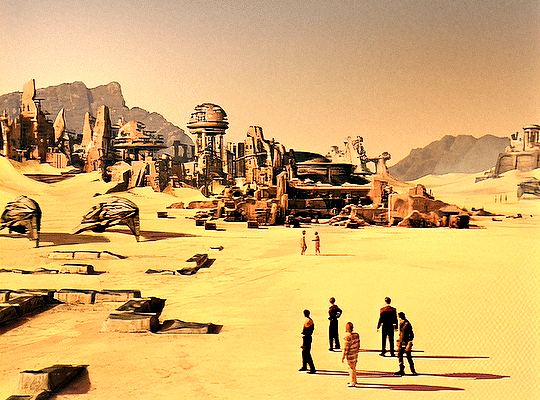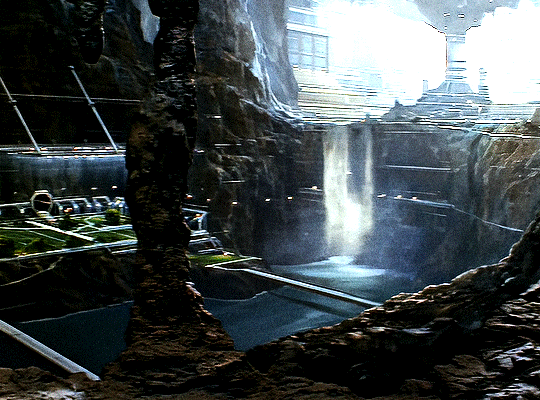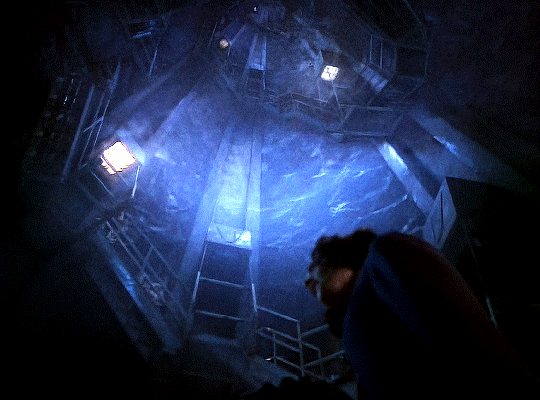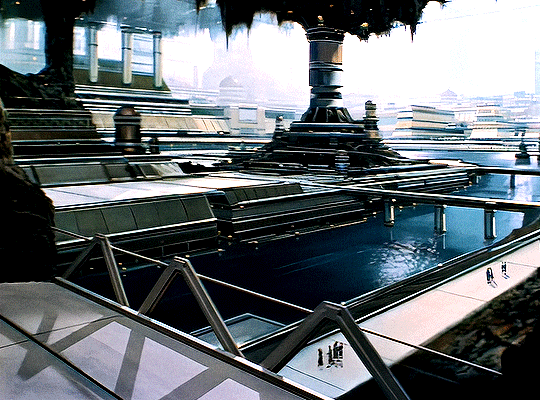#martian colony
Explore tagged Tumblr posts
Text
Whether he really said he would do it or not, donating sperm for Mars sounds like something Elon Musk would do. It's amazing, as well as cautionary, that the real life mega-rich behave like wannabe James Bond villains.
Elon Musk has denied that he offered up his sperm to help start a colony on Mars. The SpaceX founder, who has previously warned that humanity must colonize Mars if it is to survive, said he had not made a personal contribution to that effort after The New York Times reported he had volunteered his sperm as part of SpaceX's plans to build a city on the red planet. "I have not, for what it's worth, 'volunteered my sperm'" wrote Musk in a post on X. [ ... ] According to the NYT report, which is based on interviews with more than 20 people close to Musk and SpaceX and on internal SpaceX documents, Musk has directed SpaceX employees to investigate the details of how a Mars colony would work, with one team drawing up plans for a series of dome-shaped habitats on the red planet. A SpaceX medical team is also reportedly looking into whether it is possible for humans to have children on Mars, the Times wrote. Two people with knowledge of Musk's comments also told the NYT the Tesla CEO had volunteered his sperm to help grow the colony.
A colony of inbred Martians Muskians on the Red Planet would be a great subject for a comedic dystopian novel or TV series. Perhaps a clone of Musk's hair transplant surgeon would also be present at the colony.
Elon's Martian sperm is not the only news regarding him today.
Elon Musk's X platform in breach of EU rules
Preliminary findings from the European Commission on Friday said tech billionaire Elon Musk's X (formerly Twitter) social media platform was in breach of EU digital content rules. "Today, the Commission has informed X of its preliminary view that it is in breach of the Digital Services Act (DSA) in areas linked to dark patterns, advertising transparency and data access for researchers," the European Commission said in a statement. [ ... ] "Back in the day, BlueChecks used to mean trustworthy sources of information," European Commissioner Thierry Breton said in a statement. "Now with X, our preliminary view is that they deceive users and infringe the DSA." Secondly, the Commission said that X was not in compliance with "required transparency on advertising" and did not provide "a searchable and reliable advertisement repository." In the third preliminary finding, the Commission said that X "fails to provide access to its public data to researchers" which it said need to be in line with the DSA.
#elon musk#elon's sperm#bodily fluids#spacex#mars#martian colony#james bond villains#billionaires#twitter/x#european union#european commission#digital services act#dsa#thierry breton#social media#leave twitter#delete twitter#quit twitter#get off of twitter
2 notes
·
View notes
Text
When I watched Avatar: Way of Water, I left it thinking, you have this incredible technology to 3D print skyscrapers and terraform an alien planet, why not just do that on Earth to make it better?
But I live on earth now, and that has answered my own question.
We currently have the technology and the wherewithal to fix the environment en mass, but we're not. It's a wild place to be.
#terraformation#mars mission#life on mars#martian colony#colonization#terraforming#science fiction#sci fi#avatar way of water#3d printing#unobtanium#world building#environmetalists#ozone#environmental conservation#environmental concept art#capitalism kills#death to capitalism#climate clock#global warming#freejack#dystopias#aliens
3 notes
·
View notes
Text
Could Mycocrete Become A Building Material For Homes On Earth, The Moon, And Mars?
0 notes
Text
The Day the Monster Visited Martian Colony
{Author’s Note: This is a special blog post featuring my 12th short story. This Thursday will also feature the story on my other blog, Joe’s Journey, for those different audience members. Hope you enjoy it and Happy Mardi Gras!} It was an unassuming place by all accounts. It stood there off the beaten path but welcoming to those wanting of a beverage or two. Or so it seemed. John and Terry were…

View On WordPress
0 notes
Text
"And before we judge of them too harshly we must remember what ruthless and utter destruction our own species has wrought, not only upon animals such as the vanished bison and the dodo, but upon its own inferior races. The Tasmanians, in spite of their human likeness, were entirely swept out of existence in a war of extermination waged by European immigrants in the space of fifty years. Are we such apostles of mercy as to complain if the Martians warred in the same spirit?"
-H.G. Wells, The War of the Worlds (1897)
#books#quote#fiction#lit#literature#hg wells#war of the worlds#martians#scifi#colonialism#imperialism#indigenous#history
10 notes
·
View notes
Text


One of my uni essays this semester was on The War of The Worlds so please have my Martians drawn hastily on the whiteboard in the study room in effort to get into the right mood
#martians#the war of the worlds#ngl i love them#like i think this book is genuinely scary and the martians are great allegories for the unfeeling march of colonial Britain#but also them in their lil bug machines#vibes#they just have such a goofy vibe#although. standing as tall as they are described they'd be horrifying#but at a rough height of 30cm and drawn in red marker? I'd give that thing a pat on the head
7 notes
·
View notes
Text
NASA Image Reveals Mysterious UFO Disk on Mars
Researcher Jean Ward discovered this Flying Disk that had hit the surface of Mars. This is just another example of Aliens in space and NASA failing to investigating. It prefers microbes. Go figure.
#ufosightingsfootage#ufosfootage#ufo#ufos#realufo#ufonews#aliens#alien#moon#ufostoday#mars#military#martian#colony on mars#mars base#face on mars#marsrover#life on mars#marsufodisk
9 notes
·
View notes
Note
do the palmer station crew develop the antarctic winter accent
oh that’s a really interesting question. for anyone curious, here’s the academic journal article discussing a study of phonetic change over i think an 8 month period. it’s a small sample size but the premise has a firm grounding in phonology. actually the urge to also link back to this post, as a related point.
i think ava and camila notice it first, as the people who talk the most (although, if you count the fact that lilith chats to all of her little creatures almost constantly, she actually talks the most).
ava’s accent has always been a mess of different vowel sounds anyway because she went from portuguese to irish-accented english (derogatory in this case) and daytime TV spanish to german and french for a while and then to american english so she’s got. all of the vowels acting like strangers to her anyway.
but she also has an ear for this because unlike beatrice, she picked up her vast repertoire of languages out of necessity, wheras all but two of bea’s were picked up in more academic settings. so she hears beatrice in the cafeteria one morning insiting loudly (for her) that “muesli is absolutely a food”. and ava just has a ‘huh?’ moment over that ‘oo’ sound and the way it latches onto the ‘d’ (and yes, she does let out a little self-satisfied chuckle at the innuendo). it’s still beatrice, especially in the deliberateness of the ‘f’, but the vowels are faintly different.
then she hears lilith roll her eyes (this is somehow possible) before saying, “it looks like something you feed to the crows if you want them to like you.”
then cam, “aw lilith did you make friends with crows? that’s adorable.”
ava slips into the cafeteria just as lilith darts crossly out into the corridor with a blunt “ava” as what passes for politness, clutching her mug and trying to hide her blush. and that, too, catches ava off-guard; her vowel-thick name just a little bit different in lilith’s mouth.
she and cam spend weeks laughing at beatrice and lilith and their slowly-eroding accents. beatrice and ava having settled into a routine of mutual infodumping sessions during the winter months. listening to beatrice turn a bit soft in her sounds, and how it matches the way she speaks, full of quiet, reverant joy.
#palmer station au#phonetic change is actually very important in writing sci-fi#the expanse had some good examples of this#the development of belter creole#the martian accent! it’s really interesting actually and has obviously been a phenomenon in colonialism and any form#of exodus. the boston accent etc etc#uh yeah anyway the change here would be subtle. a shift in where vowel sounds are generated and some elongation of particular sounds#phonology is a fascinating topic!#anon
18 notes
·
View notes
Text
Everytime I replay it/watch someone else play it, I remember how much someone on the writing team for specifically Mass Effect 3 is a War of the Worlds fan.
#mass effect#the war of the worlds#like to the point of the opening being literally the end of the first act in the Jeff Wayne version#you wanna know why Priority Earth is inexplicably in London? War of the Worlds#why do the Reapers suddenly blare alarms when neither Sovereign or Harbinger did to my mind? The Martian 'Ulla!'#Hell the first actual mission is on MARS for God's sake#this is blatant and as a fellow War of the Worlds fan I really appreciate it#hell given that the majority of the game is focused on healing old racial and colonial wounds (Tuchanka especially springs to mind)#AND how much the game establishes that without their technological advantages the Reapers keep getting beaten like a drum#Mass Effect 3 might actually be one of the most thematically faithful adaptations of The War of the Worlds in existence#which honestly says more about the other adaptations than it does about Mass Effect 3
8 notes
·
View notes
Text
reading War of the Worlds having gone through covid is kinda wild
#the way the media poorly reports the invasion thus putting more people at risk...oof#good book tho. really appreciate how wells parallels the martian invasion to english colonialism#omg imagine if martians invaded and fucking covid killed them all off and saved us...
0 notes
Text
Wednesday Weekly Blogging Challenge: Would You Move to A Mars Settlement? Explain.
Wednesday Weekly Blogging Challenge: Would You Move to A Mars Settlement? Explain. #WritingCommunity #WriterCommunity #BloggingCommunity #BloggerCommunity #WednesdayWeeklyBloggingChallenge #Challenge #Wednesday #Mars #MartianSettlement #Colony
Hi everyone! I hope you’re all well. Today is Wednesday, and it’s time for another post in the Wednesday Weekly Blogging Challenge hosted by Long and Short Reviews. If you’d like to participate in the challenge, you can find the list of topics for 2023 here. If you’re interested in reading other people’s responses to this week’s topic, you can do so here. Would You Move to A Mars Settlement?…

View On WordPress
0 notes
Text
i should rewatch gurren lagann
#im drawing gr stuff rn (ofc) and i got reminded of all the rumors I've seen over the years abt how ttgl is an arc fix-it fic#WAIT HERES MY ARC SEQUEL PITCH LMAO#main characters live in an oppressive martian colony#arc team have since become legendary space pirates idolized by the mc#main team wants to bust out and see the universe#so they steal a getter and do crimes
1 note
·
View note
Text
At the outset of H. G. Wells’s The War of the Worlds (1898), Wells asks his English readers to compare the Martian invasion of Earth with the Europeans’ genocidal invasion of the Tasmanians, thus demanding that the colonizers imagine themselves as the colonized, or the about-to-be-colonized. But in Wells this reversal of perspective entails something more, because the analogy rests on the logic prevalent in contemporary anthropology that the indigenous, primitive other’s present is the colonizer’s own past. Wells’s Martians invading England are like Europeans in Tasmania not just because they are arrogant colonialists invading a technologically inferior civilization, but also because, with their hypertrophied brains and prosthetic machines, they are a version of the human race’s own future.
The confrontation of humans and Martians is thus a kind of anachronism, an incongruous co-habitation of the same moment by people and artifacts from different times. But this anachronism is the mark of anthropological difference, that is, the way late-nineteenth-century anthropology conceptualized the play of identity and difference between the scientific observer and the anthropological subject-both human, but inhabiting different moments in the history of civilization. As George Stocking puts it in his intellectual history of Victorian anthropology, Victorian anthropologists, while expressing shock at the devastating effects of European contact on the Tasmanians, were able to adopt an apologetic tone about it because they understood the Tasmanians as “living representatives of the early Stone Age,” and thus their “extinction was simply a matter of … placing the Tasmanians back into the dead prehistoric world where they belonged” (282-83). The trope of the savage as a remnant of the past unites such authoritative and influential works as Lewis Henry Morgan’s Ancient Society (1877), where the kinship structures of contemporaneous American Indians and Polynesian islanders are read as evidence of “our” past, with Sigmund Freud’s Totem and Taboo (1913), where the sexual practices of “primitive” societies are interpreted as developmental stages leading to the mature sexuality of the West. Johannes Fabian has argued that the repression or denial of the real contemporaneity of so-called savage cultures with that of Western explorers, colonizers, and settlers is one of the pervasive, foundational assumptions of modern anthropology in general. The way colonialism made space into time gave the globe a geography not just of climates and cultures but of stages of human development that could confront and evaluate one another.
The anachronistic structure of anthropological difference is one of the key features that links emergent science fiction to colonialism. The crucial point is the way it sets into motion a vacillation between fantastic desires and critical estrangement that corresponds to the double-edged effects of the exotic. Robert Stafford, in an excellent essay on “Scientific Exploration and Empire” in the Oxford History of the British Empire, writes that, by the last decades of the century, “absorption in overseas wilderness represented a form of time travel” for the British explorer and, more to the point, for the reading public who seized upon the primitive, abundant, unzoned spaces described in the narratives of exploration as a veritable “fiefdom, calling new worlds into being to redress the balance of the old” (313, 315). Thus when Verne, Wells, and others wrote of voyages underground, under the sea, and into the heavens for the readers of the age of imperialism, the otherworldliness of the colonies provided a new kind of legibility and significance to an ancient plot. Colonial commerce and imperial politics often turned the marvelous voyage into a fantasy of appropriation alluding to real objects and real effects that pervaded and transformed life in the homelands. At the same time, the strange destinations of such voyages now also referred to a centuries-old project of cognitive appropriation, a reading of the exotic other that made possible, and perhaps even necessary, a rereading of oneself.
John Rieder, Colonialism and the Emergence of Science Fiction
#words#hg wells#fiction#science fiction#colonialism and the emergence of science fiction#john rieder
478 notes
·
View notes
Text
They Colonized Mars
A Martian warehouse worker takes his surveillance bot out for drinks
> sci-fi/horror original fiction, 4.8k words
> an exploration of space colonialism, capitalistic exploitation, disability and gender. Or: my strongly worded love letter to the genre
Directory:
> content warnings
> part 1 & 2
> part 3
> part 4
> part 5
> part 6
Name-your-price PDF download
#txt#they colonized mars#hi the tag system isnt quite as neat as id like so im making a masterpost now
352 notes
·
View notes
Text







STAR TREK MATTE PAINTINGS APPRECIATION VOYAGER — by Syd Dutton, Robert Stromberg, Eric Chauvin (Illusion Arts Inc.)
Zahl Colony — "Year of Hell" Ocampa — "Caretaker" USS Raven crash site — "The Raven" Ocampa City — "Caretaker" Access shaft (Ocampa) — "Caretaker" Martian City — "Lifesigns" Ocampa City — "Caretaker"
#from my previous post it seems people think the matte paintings were a TOS thing only? but all the old shows and movies up to voy had them!!#the obv difference being that these are all composites that include some animated and/or green screen elements but they're still pretty <3#mattes#trekedit#voy#star trek: voyager#voyageredit#startrekedit#tvedit#scifiedit#whenever voy and ds9 finally get a bluray remaster....that will fix me (until then I suffer. badly)
888 notes
·
View notes
Text
I've got an itch in my head to write a scifi short story in a 70s style about a lonely asteroid miner who lives in a habitat that's only men, and he's saving up to buy a ticket off this rock, and he's planning to visit the Martian colony. See, they had significant limits on lift mass when they colonized the planet, so they took primarily young, thin, women. So he hopes he can find a spouse there. The PanAm check-in counter says "Enjoy your trip, Mr Bowie"
Story title: Is There Wife on Mars?
136 notes
·
View notes